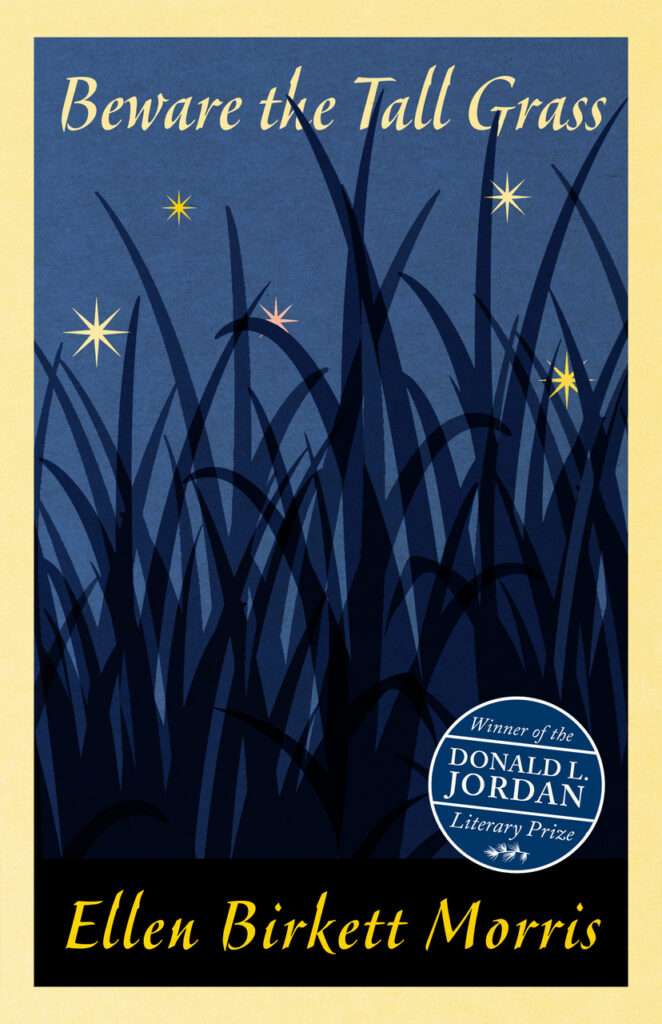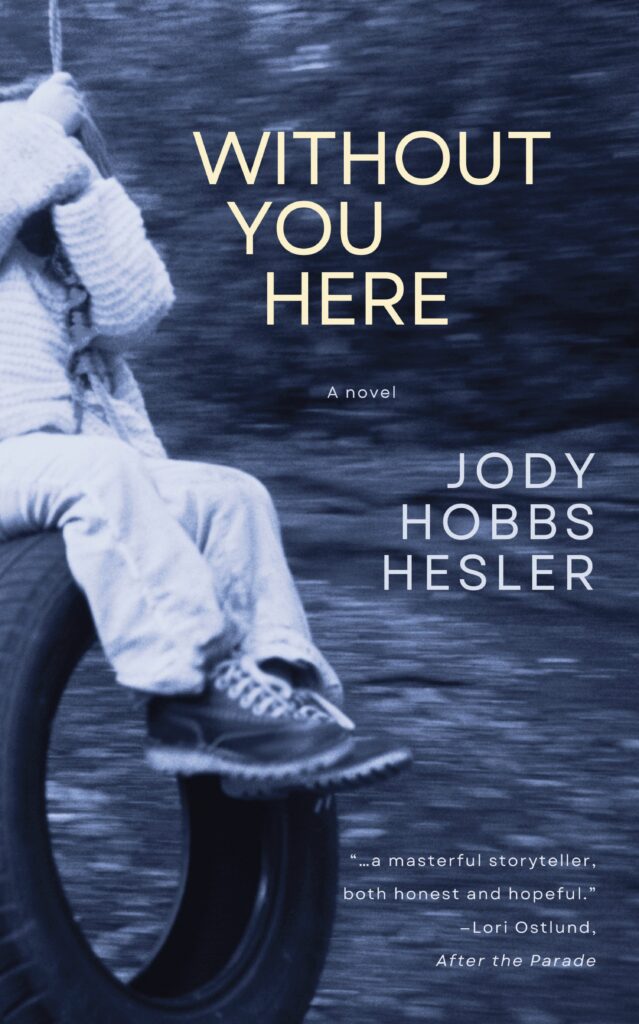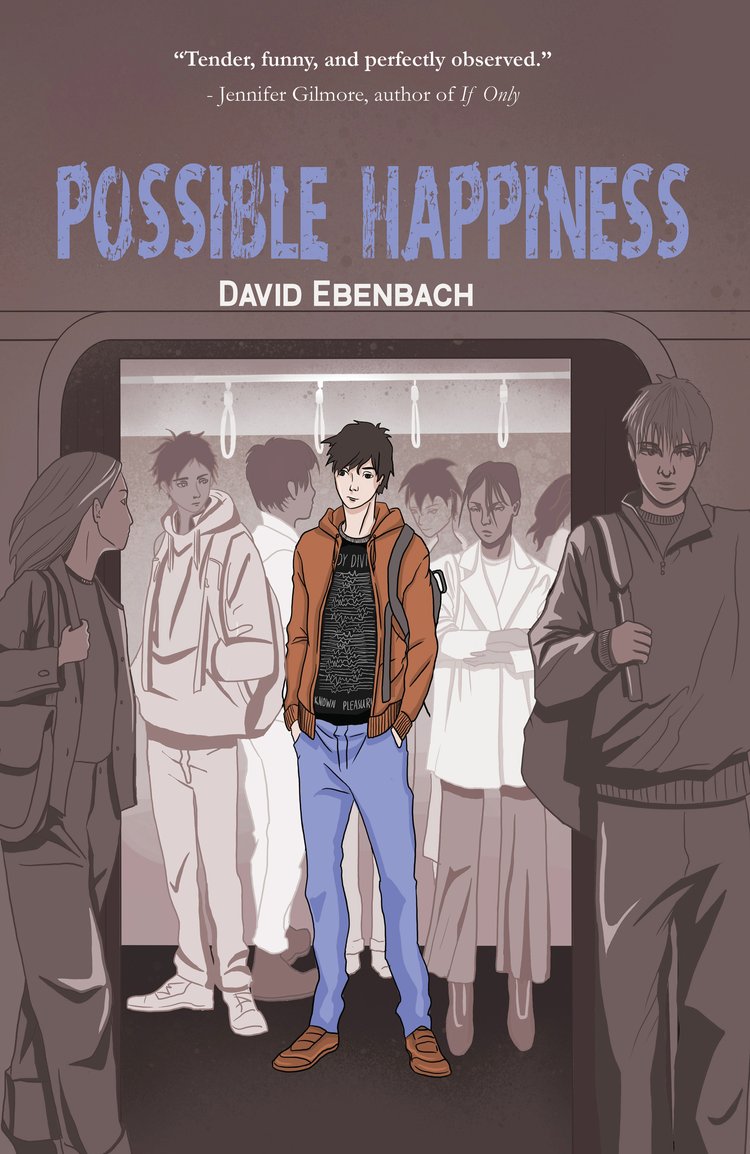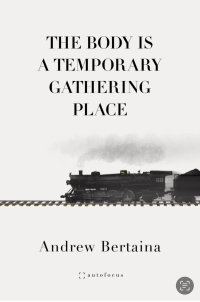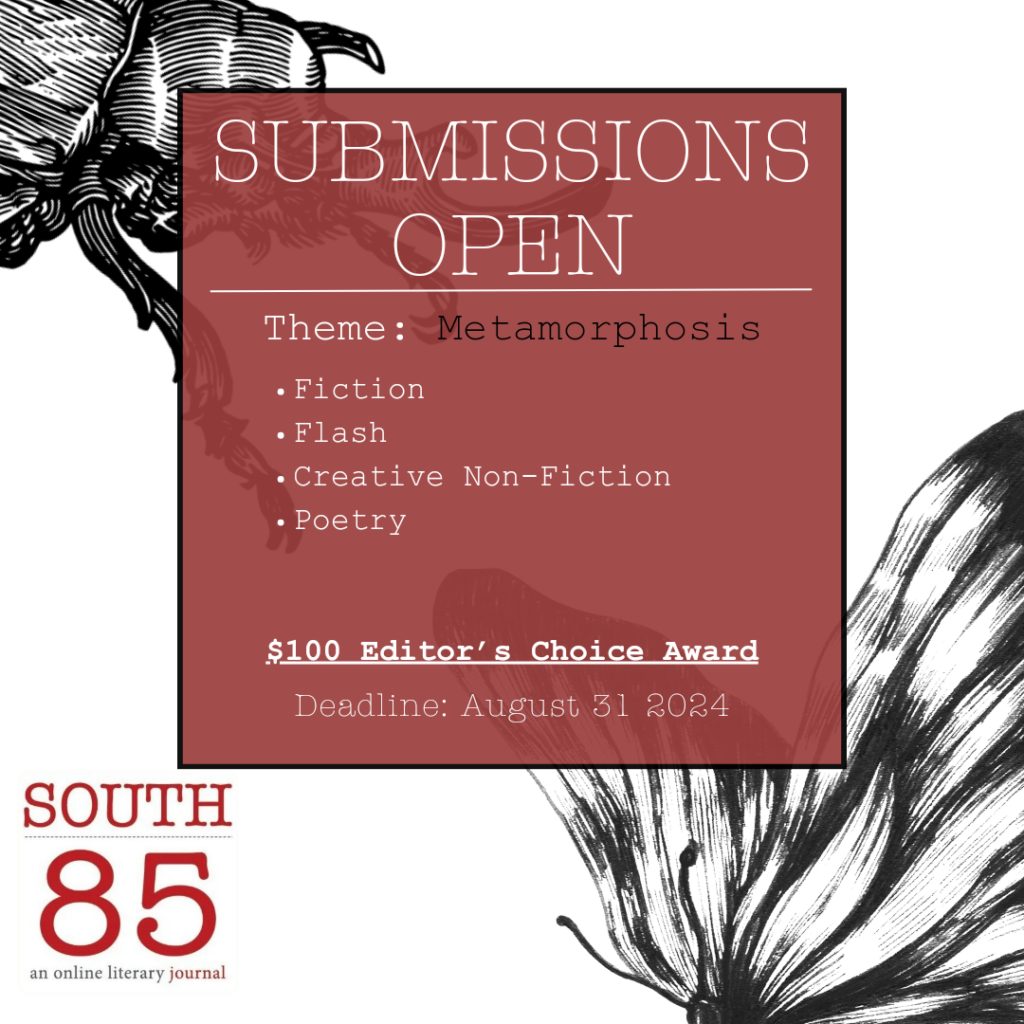Merrill Oliver Douglas has kept a journal since the 11th grade, and her poetry reflects the careful and compassionate attention she’s paid to the world for decades. In her new collection, Persephone Heads for the Gate, winner of the 2022 Gerald Cable Book Award, Douglas resurrects people and places past, interrogates the present, and peers with both curiosity and apprehension into the future. When I spoke with her by phone recently, she had just come off a day of kayaking with friends. And indeed, kayaking and friends show up in the collection along with trains and planes, God, love, New York City, mortality, marshmallows, and more.
Tell me about your journey as a poet. After reading Persephone Heads for the Gate (Silverfish Review Press, 2024), and your chapbook Parking Meters into Mermaids (Finishing Line Press, 2020), I admire how skillfully you bring a lifetime of experience to bear on your poems. How long you have been writing poetry?
I started writing verses in the second grade. They rhymed and scanned because that kind of thing was in the air back then—popular songs and commercials. I picked up on rhythm and musicality early.
I always figured I would be a writer, though I assumed I’d write novels. At some point, I realized I didn’t have the concentration or maybe the knowledge of life you need to create real characters and full stories, so I focused on poetry.
In high school, a teacher told me to go home and write sonnets because that was good practice. I did, and found it was exciting—the way the form forces you not to accept the first thing you write. You must come up with new words or change how you are saying things. That’s where I started gaining a sense of craft.
I kept at it through college. I went to Sarah Lawrence which had a great creative writing program. I took classes and was convinced I was going to be a poet with a capital P.
However, as happens with many of us, competing events took over. I had a child, and held a job that became more and more demanding, so I didn’t write much during those years. When my son left home, and I had more time, I started again.
You are a master of time travel in this collection. Your speakers and narrators observe places, people, events, and objects with a keen eye to past, present, and future. In a way, Time itself is a character. Is that something you did purposefully?
Thank you for that insight! That never occurred to me. I couldn’t have come up with it myself—Time as an important theme. The past is a rich natural resource for most writers. We all have so many stories. It may be a factor that I have kept a journal since the 11th grade. I have volumes of close observations recorded throughout my life which give me access to memories I might otherwise have lost.
How did you arrive at the book’s structure? Many poets struggle with organizing a collection.
I consulted some of the same books and resources many poets do, though I found much of the advice to be contradictory, sometimes even within the same essay!
I did try one recommended system. First, I weeded out the weakest poems. With the remaining poems, I jotted down major themes and arranged them to speak to each other. I also thought about the physical shapes of the poems, things like putting shorter poems next to longer ones to vary the reading experience.
My poetry workshop group, the Grapevine Poets, with whom I meet twice a month, held a manuscript party once I had a draft. They provided helpful feedback. For instance, they advised that poems about the physical body be spread throughout the collection rather than located together. Still, much of that feedback was also contradictory so I had to go back and figure it out myself.
Ultimately, there’s no magic formula. A lot of it comes down to trusting your gut.
Can you talk about the long poems in Section II? Located in the center of the collection, in some ways they seem its very heart. To start, talk about “Where I Live.” That poem deals with place, place over time, and place from various perspectives— something woven throughout that comes to a crescendo there. What prompted you to write it? Did you write all six parts all around the same time?
That poem began in 2019 in an online Fine Arts Work Center workshop with Ed Skoog. It was a workshop on writing a long poem which is way out of my comfort zone. I discovered in this workshop, that if I was going to write a long poem, I’d have to do it in a series of shorter sections that would speak to each other.
I wrote four of the six sections in the workshop. Ed liked three but advised me to drop one and to write a new one, or to find an old poem on a similar theme and rework it to fit. I ended up taking two preexisting poems that were also on the theme of place, and home, and sense of home shifting, and I fit them in. But I also felt devoted to the section he saw as weak. I improved it, and it’s now the poem’s last section.
“Body Songs” in Section II deals with a speaker’s body from childhood to young adulthood. That exploration of physicality (expanded to include birth, aging, illness, death) is evident throughout the book. Several poems such as “Prepping for the Colonoscopy,” “It’s Not Like I Need it Anymore,” “Thirst,” and “Another Poem about Menstruation,” speak truth about the body, especially the female body, with a wry sense of humor, all while examining existential concerns. Can you choose a body poem and tell me about writing it, what it means to you, and what you hope readers will take away from it?
I’ll talk about “Prepping for the Colonoscopy.” The “bodyness” of this poem is not about the colonoscopy itself but about the yuckiness of the liquid you have to drink in order to clear out your system. I literally had to put drops on my tongue and fling them back one at a time to get it down.
From there, it became a meditation on living in the moment. I began thinking about how we’re always thinking about the future. All the things we do when we’re counting: How many hours till we get where we’re going? How many more days until vacation? How many steps to the top of the hill? How many years till I can retire? There’s all this concentration on the agony of longing for the future, and I began thinking that one way to not worry about the future thing is to concentrate on the thing you must do this minute, no matter how distasteful. Maybe this is a mind-versus-body poem.
Because Persephone won an award (the 2022 Gerald Cable Book Award), I believe readers would like to learn about its journey from submission to selection to publication. Can you tell us how this worked? And how you chose the gorgeous cover art?
I sent the manuscript to 14 contests or open readings. I received five rejections before I learned of the award. I then withdrew it from the remaining eight places.
I submitted it for the contest in 2022 and got the good news in June 2023. That was a faster submit-to-acceptance timeframe than my chapbook had.
Upon selection, I worked on all the business things associated with publishing such as signing contracts. I am grateful to Rodger Moody who runs Silverfish Review Press as he consulted with me on every aspect of the book. He takes pride in what he publishes. He’s taken an active role in publicizing the book too. He sends it out for review, sends publicity emails and helps me approach people about readings. I’m still in the midst of that.
He published the manuscript as it was, without any editing, though he said he sometimes does make suggestions. He also sent me the previous four winners’ books. That was generous and it gave me confidence in the final product. I liked the work of the poets Rodger had chosen and the books were beautiful, so I knew I was with a good publisher.
The story of the cover art is a fun and gratifying one. I didn’t have any idea of how to find something appropriate. My son did the artwork for my chapbook but he’s an illustrator and his style didn’t fit this book. Rodger and I went back and forth a bit before finding the right piece. When I saw a childhood friend’s artwork on her Facebook page (Robbyn Zimmerman Tilleman), I thought it might be suitable and Rodger agreed. We chose a piece, and I asked Robbyn, whom I hadn’t seen since the 1970’s, if we could use it. Happily, she said yes.
Some of my favorite poems are:
- “Thirst” because it includes all you do so well. It travels through time, and deals with the body over time, and place over time. It captures the relationship of women to each other, women to children. It’s filled with color, taste, and texture, which serve as springboards to epiphany. And genuine emotion is at its core.
- “High” because it’s short, compressed, and highlights the humor that’s an integral part of the collection.
- “As if We Could Step Through Someone Else’s Dream” because its range and perspective is ambitious. It highlights the speaker’s desire, and ability, to see the world through others’ eyes, to look at herself from outside herself. It also weaves in art and pop culture.
Can you choose one and talk about your impetus and process for writing it?
I’ll talk about “Thirst.” This is another poem that came out of a Fine Arts Work Center workshop. This one was with Erin Adair-Hodges. The prompt was to take a line from a recent draft that hadn’t worked out and use it in something else.
The line I chose appears in the poem’s second part. I formed the rest of the poem around this idea, this awareness that our bodies age and change, yet in our minds we always feel the same age. My aunt, who was failing and in the hospital at that time, became the poem’s focus. I wanted to convey how it’s both tragic and absurd to be a consciousness in a mortal body. You are yourself, yet your body is breaking down.
The poem’s closing section was sparked by childhood home movies of me, my cousins, our families and neighbors at a hotel in the Catskills. There was a little swimming pool, and the parents were all in their twenties and thirties. They are all gone now, though when I wrote this, my mother and aunt were still alive.
As I prepared for this interview, I realized that some of Persephone’s other poems also came out Adair-Hodges’ workshop, including the title poem, “Persephone Heads for the Gate.” That prompt was to put someone from myth or folklore into a modern setting. I chose an airport because when I’m traveling by myself, it’s one of the times I feel most myself, independent in the world.
Do you have any last thoughts to share, or any advice to give poets aspiring to put a collection together?
Read a lot of poetry. And write good poems! I think of poems like soup. It’s important to let them simmer. Dashing things down and free associating can be a good start, but you need to revisit the draft later, and try different things. Get it to surprise you and do more work than a first draft does. I also want to thank South 85 for giving us this opportunity to introduce Persephone Heads for the Gate to their readers, and for publishing two of the poems that appear in the collection!
ABOUT
Merrill Oliver Douglas’s first full length collection, Persephone Heads For the Gate, won the 2022 Gerald Cable Book Award from Silverfish Review Press. She is also the author of the poetry chapbook Parking Meters into Mermaids (Finishing Line Press, 2020). Her poems have appeared in Baltimore Review, Barrow Street, South 85 Journal, Tar River Poetry, Stone Canoe, Little Patuxent Review andWhale Road Review,among others. She lives near Binghamton, New York.
Mary Beth Hines is a poet, writer, and reviewer. Kelsay Books published her debut poetry collection, Winter at a Summer House in 2021. Her chapbook, After Making Love, was a finalist in Fool for Poetry’s 2023 International Chapbook Competition. Her work appears, or will soon appear, in Slant, Tar River, The Inflectionist Review, Valparaiso and elsewhere. Visit her at www.marybethhines.com
MORE INFORMATION:
Silverfish Review Press: https://silverfishreviewpress.com
Direct link to order the book: https://silverfishreviewpress.com/2022-gcba-winner-1
Merrill Oliver Douglas: https://www.facebook.com/merrill.o.douglas/
Robbyn Tilleman (cover artist): https://www.instagram.com/tillemanart/
Mary Beth Hines: www.marybethhines.com



